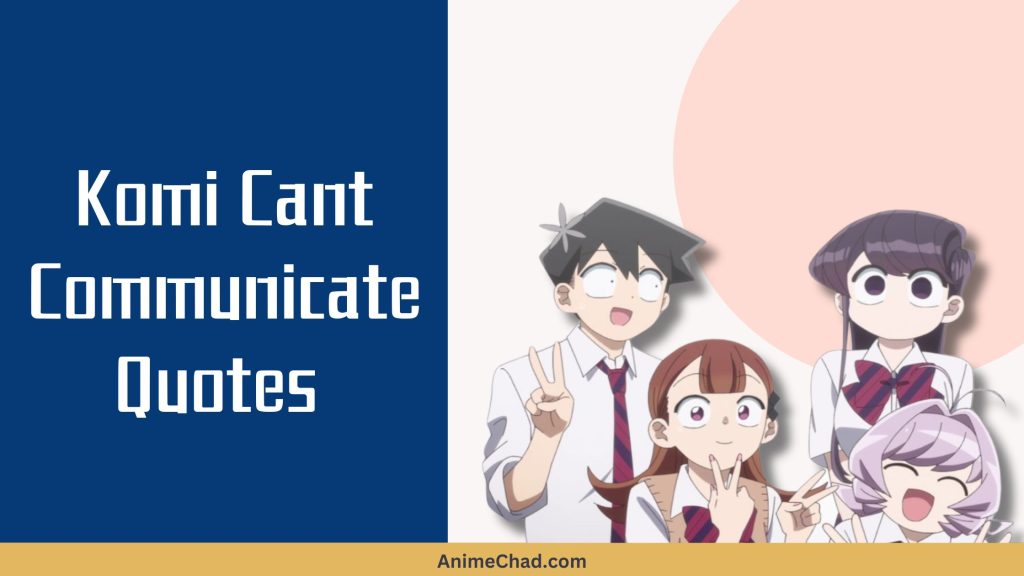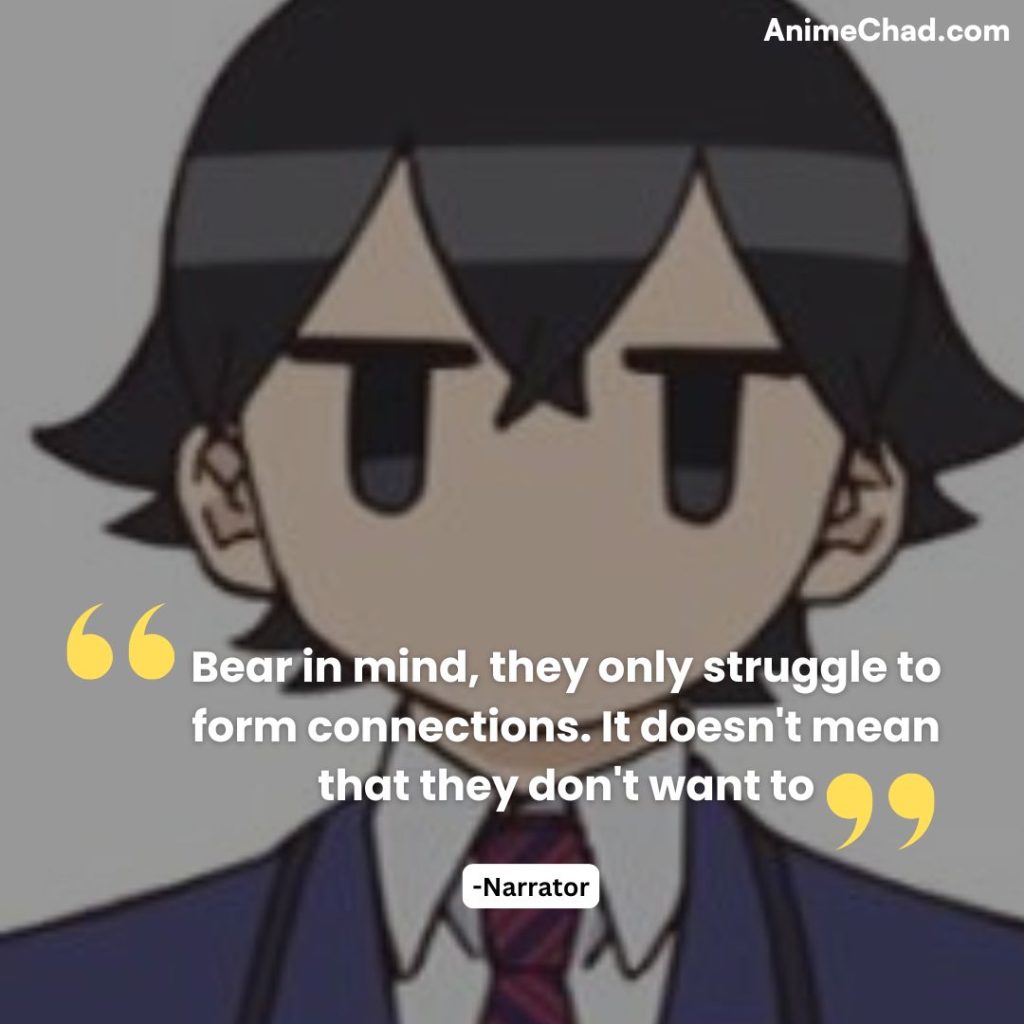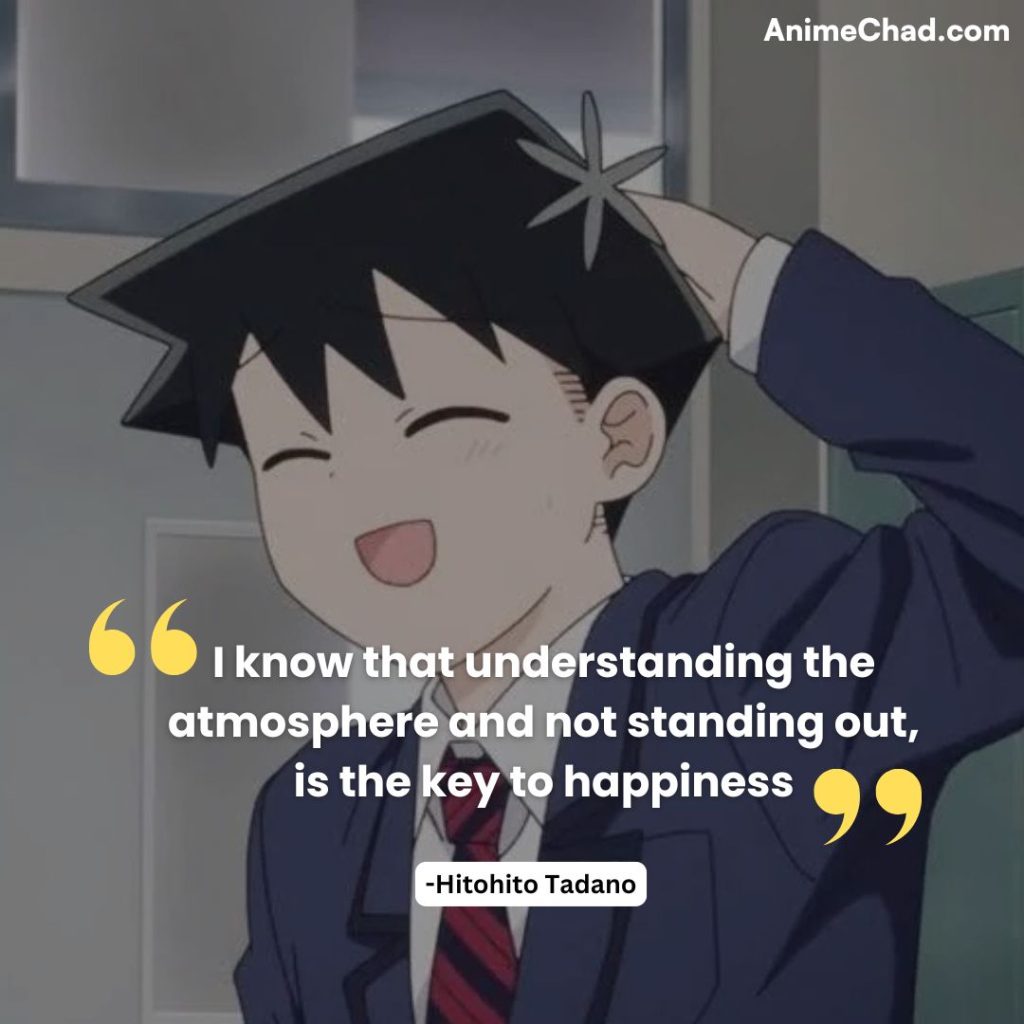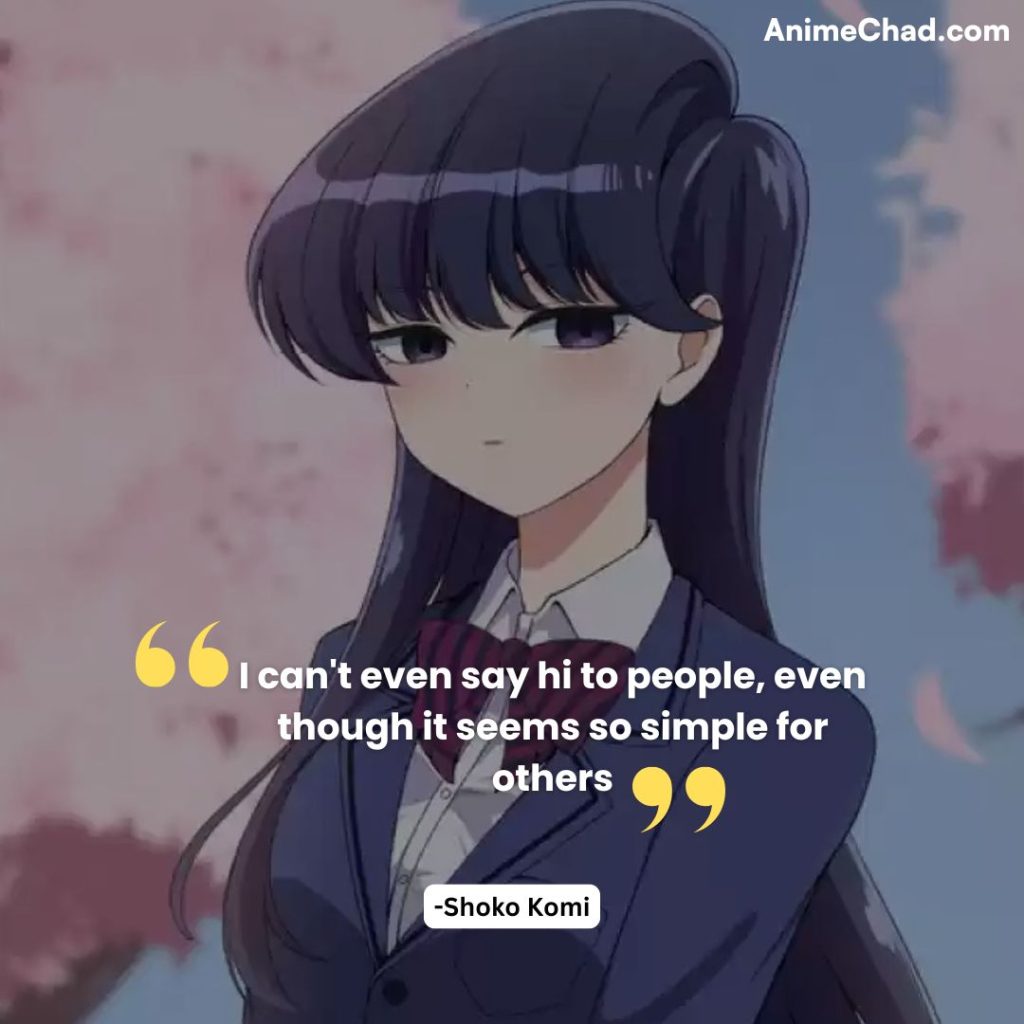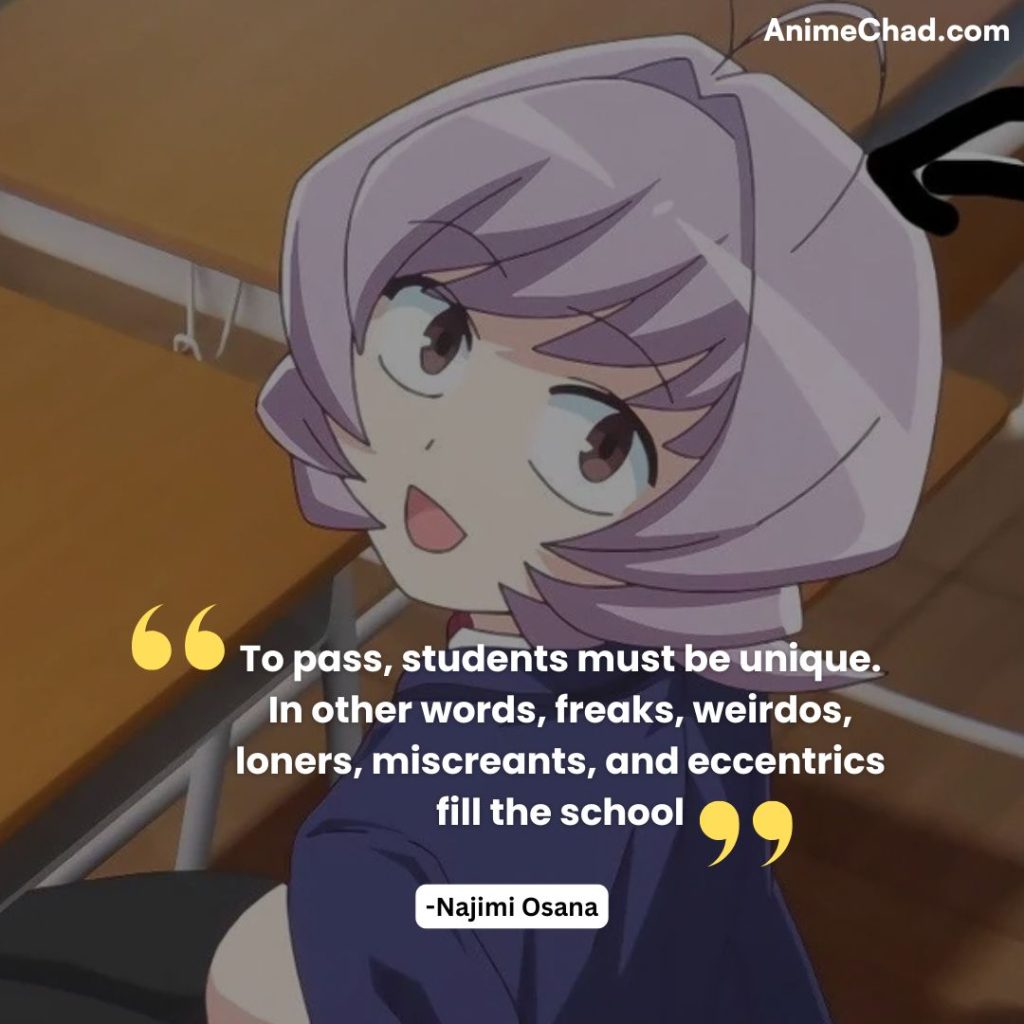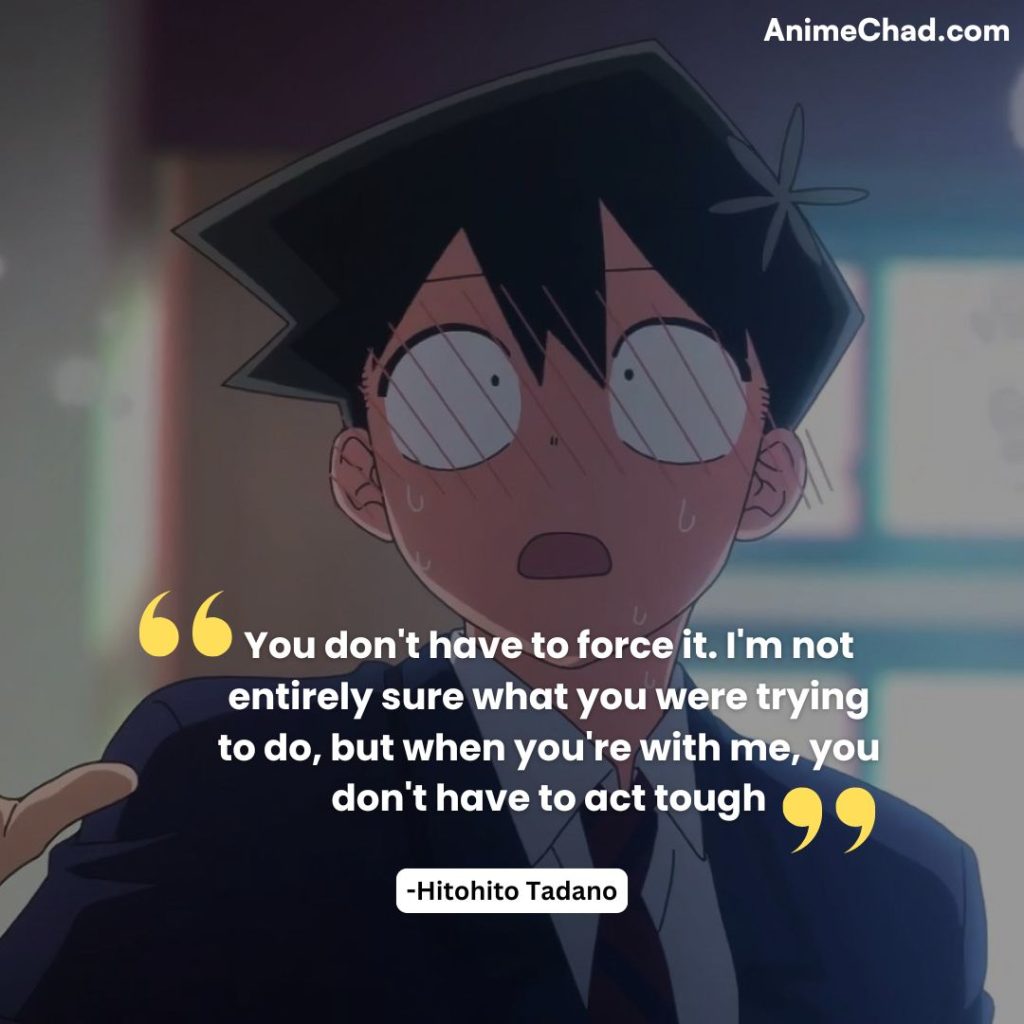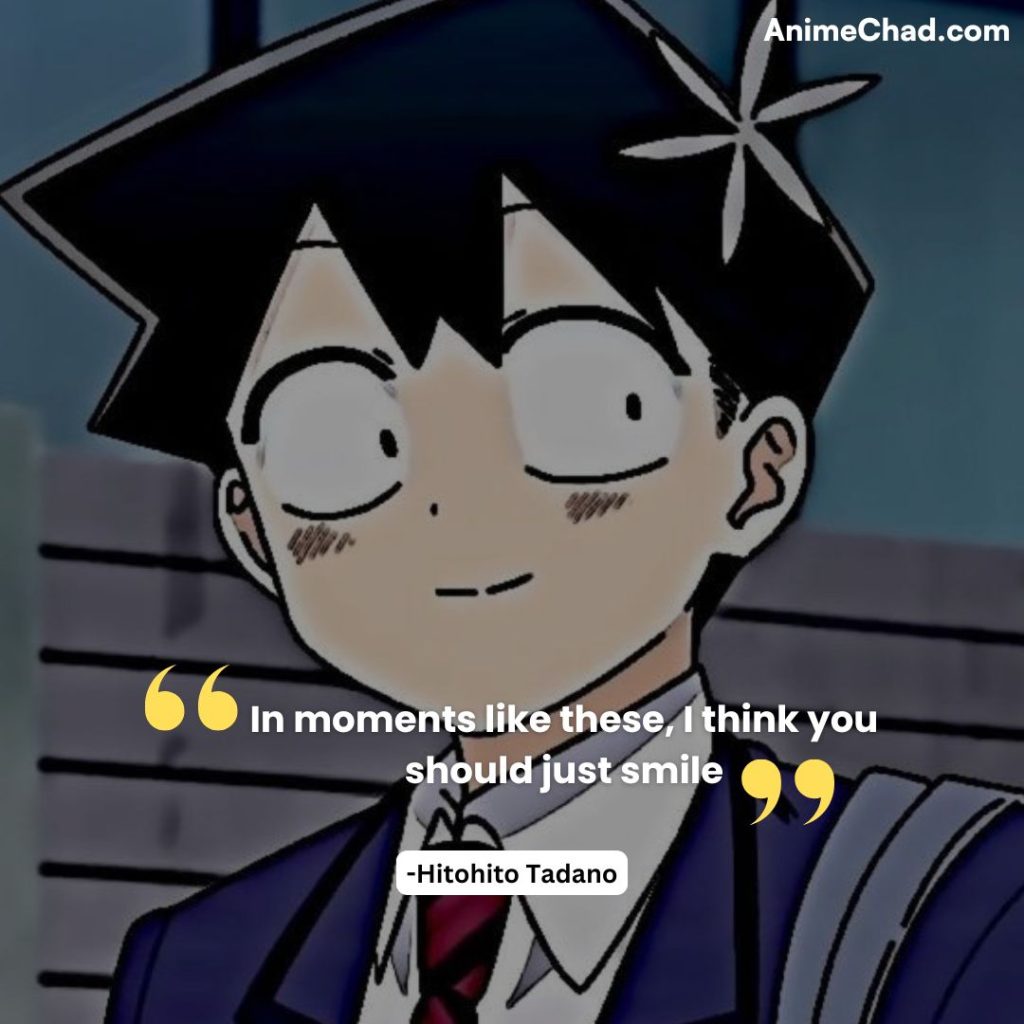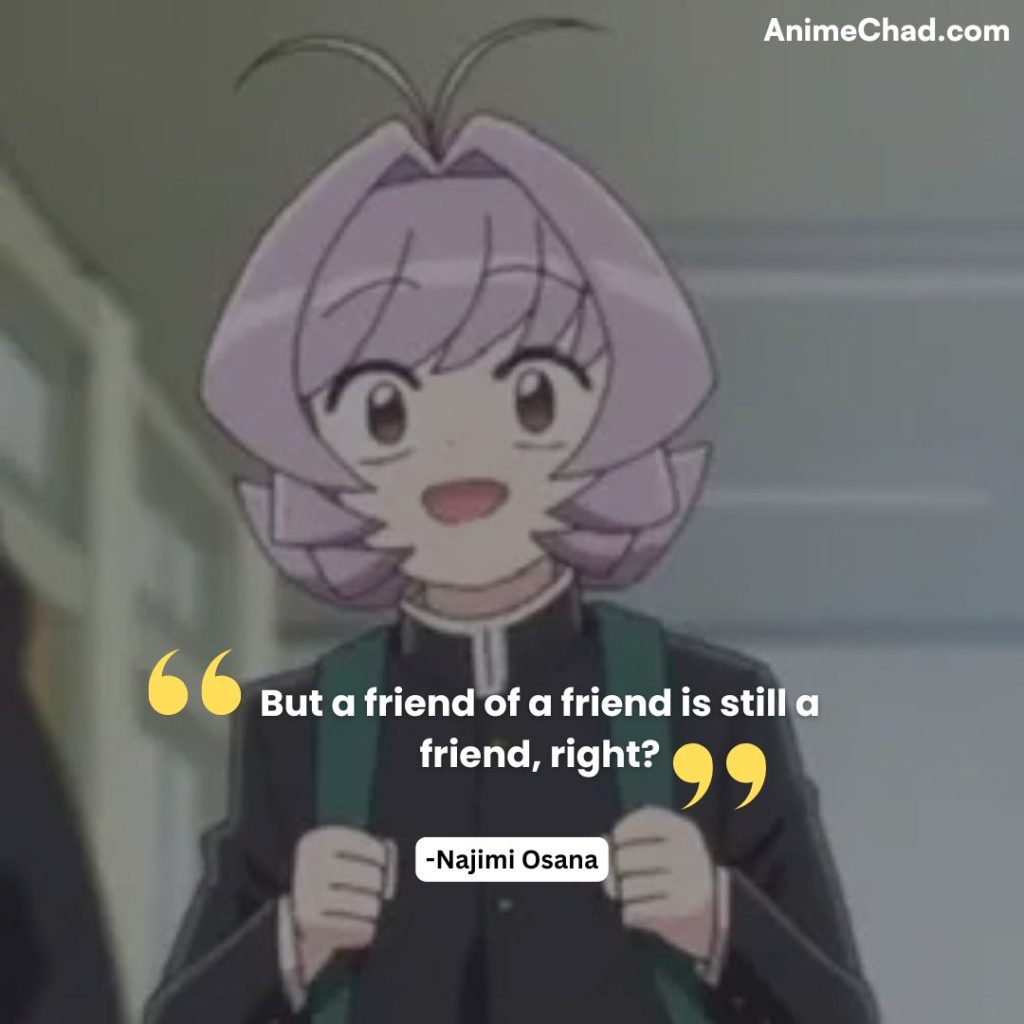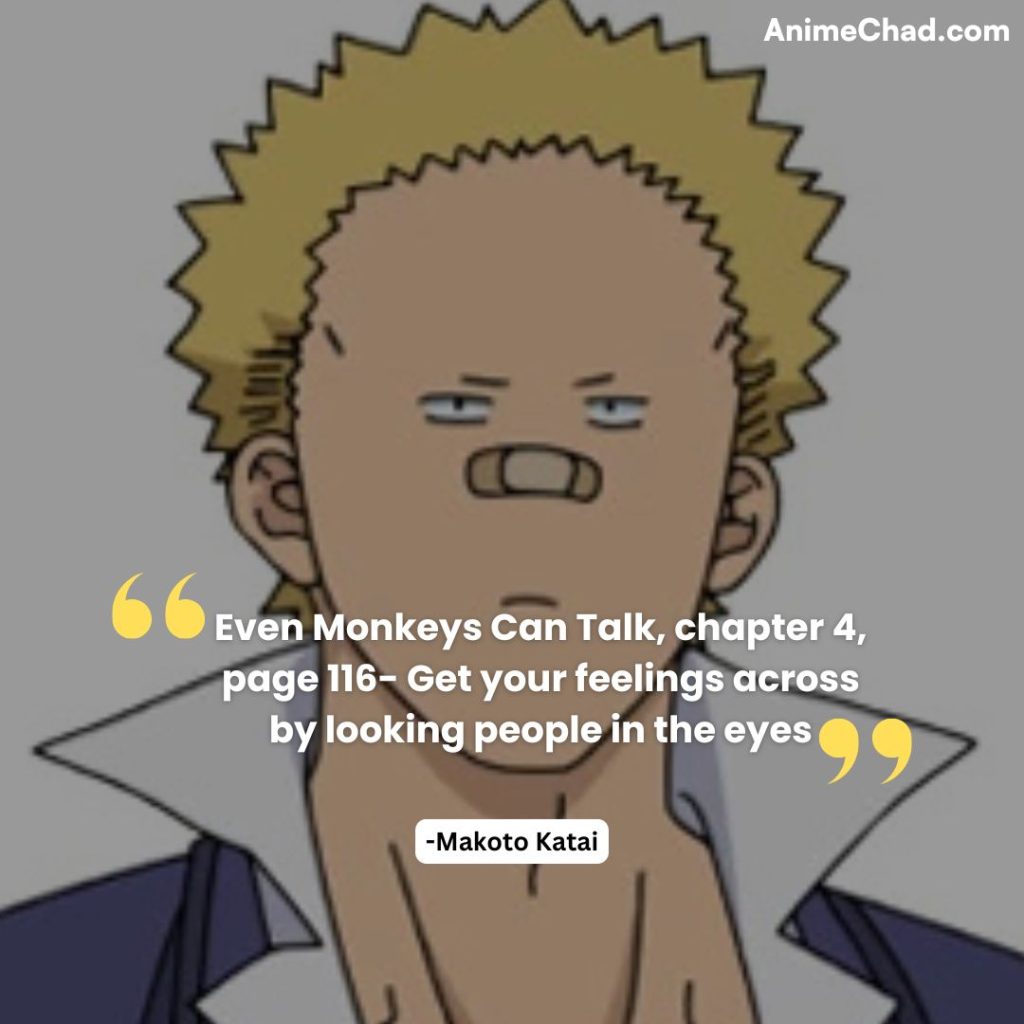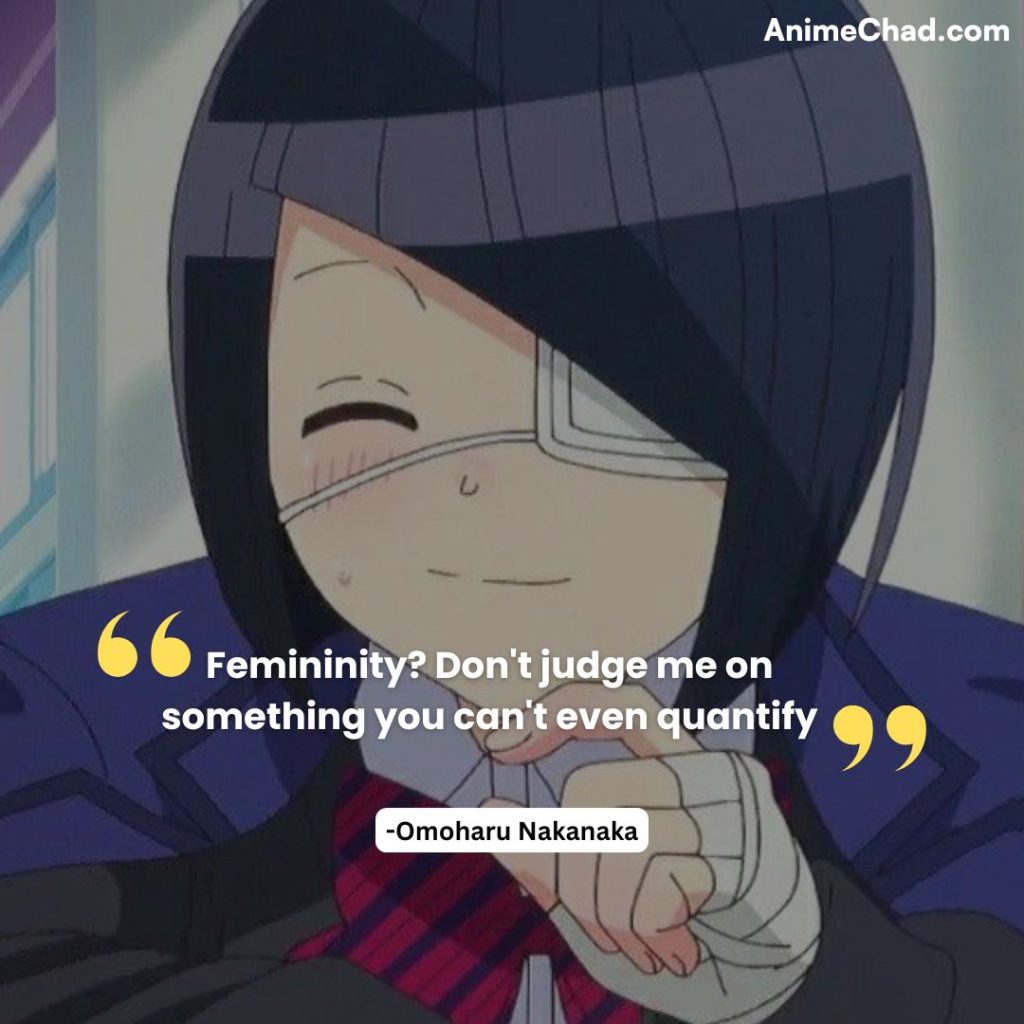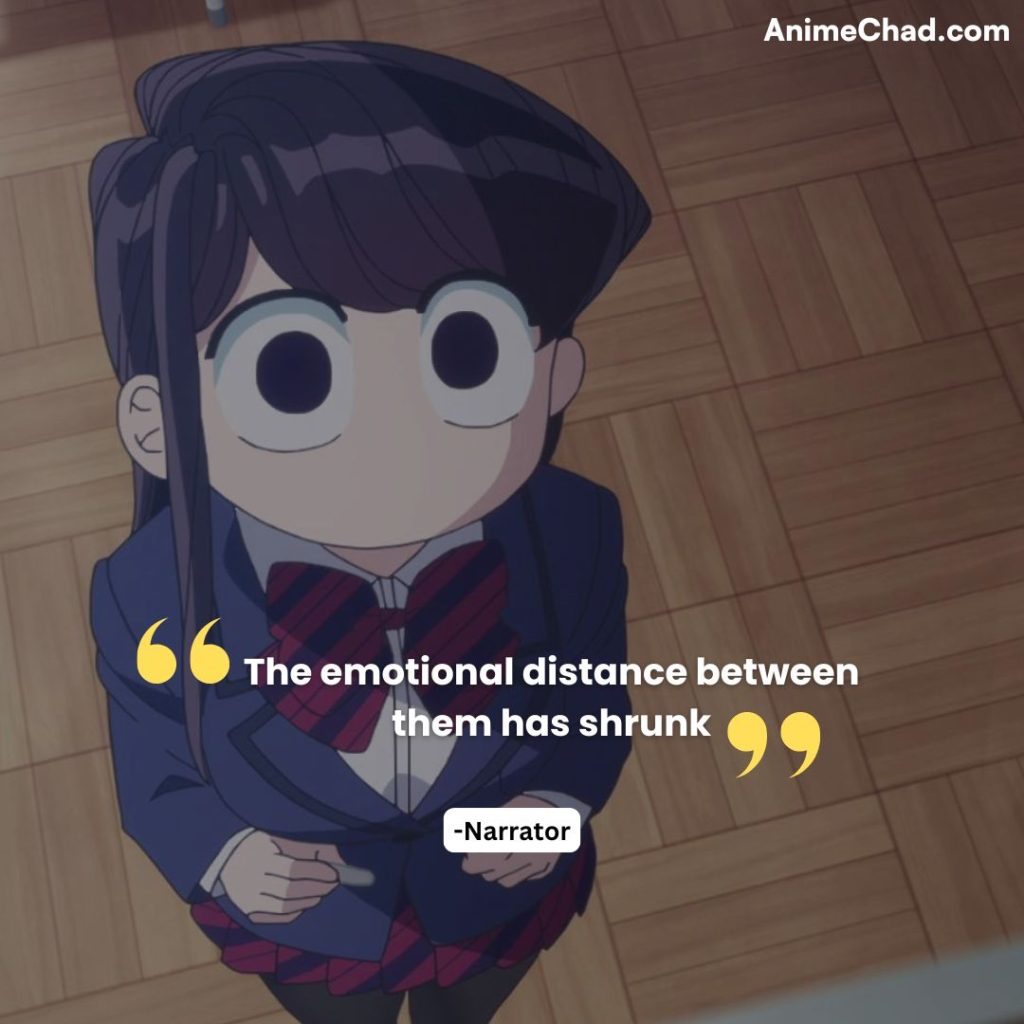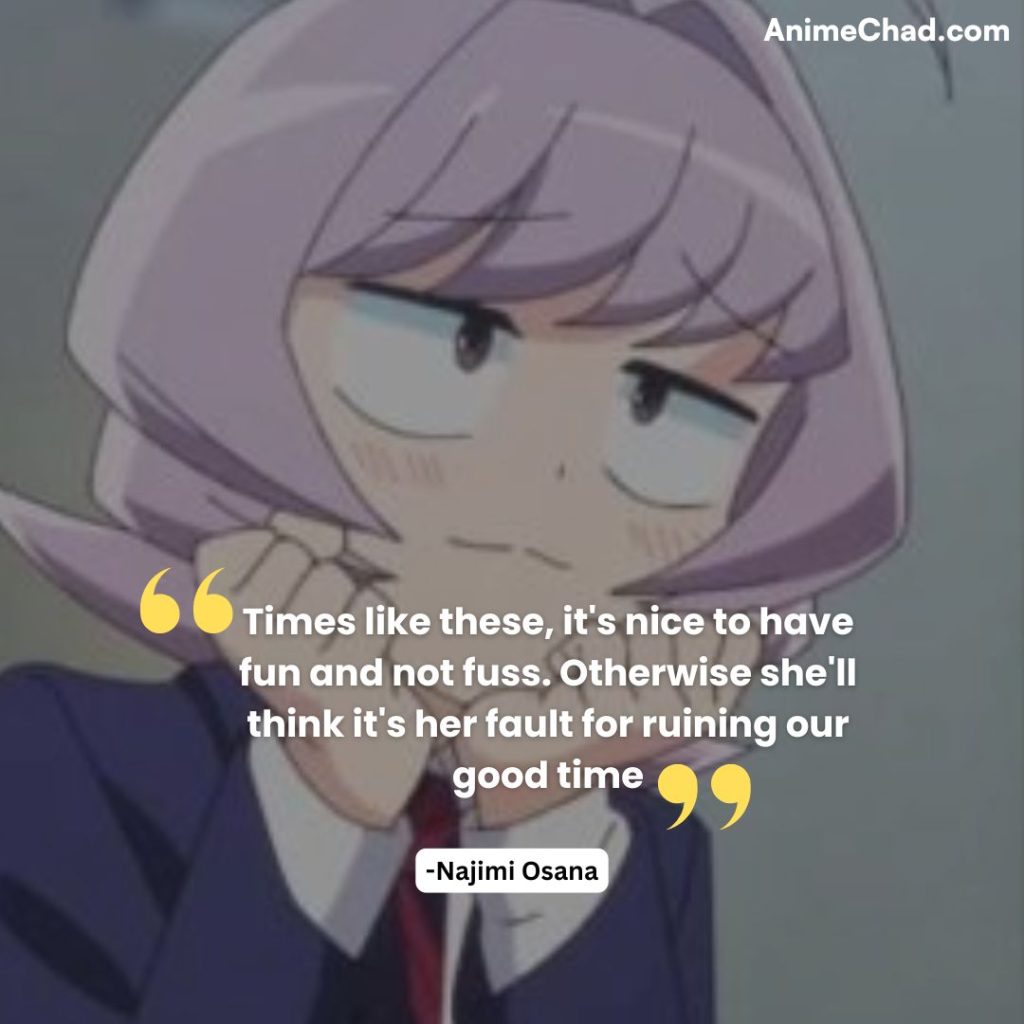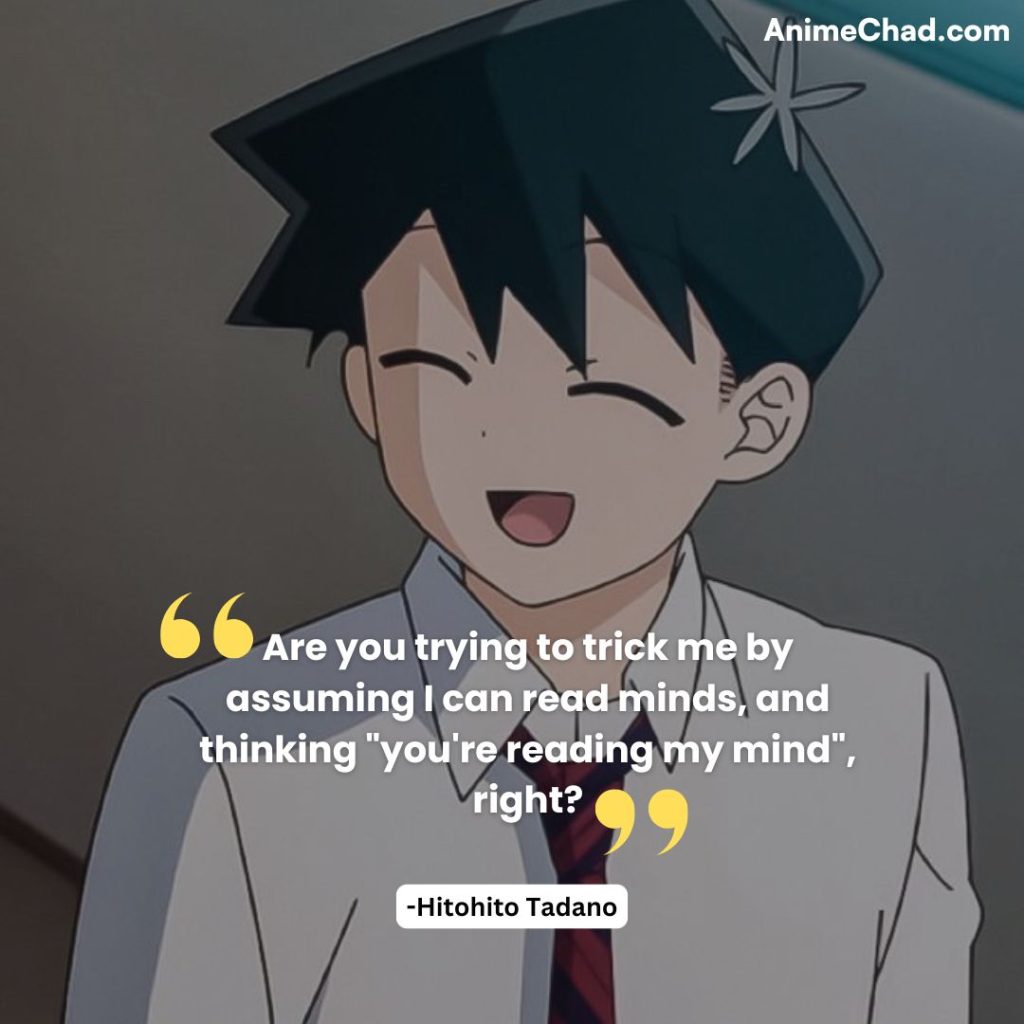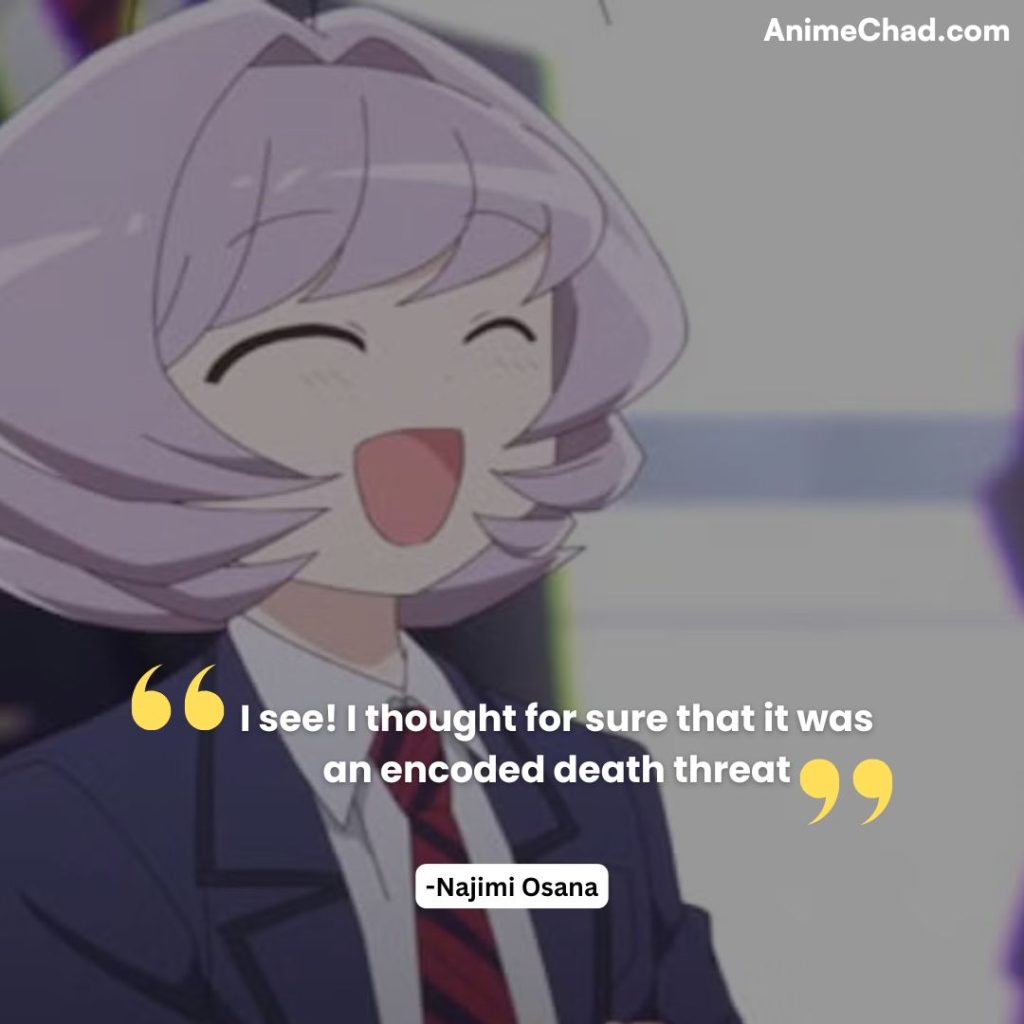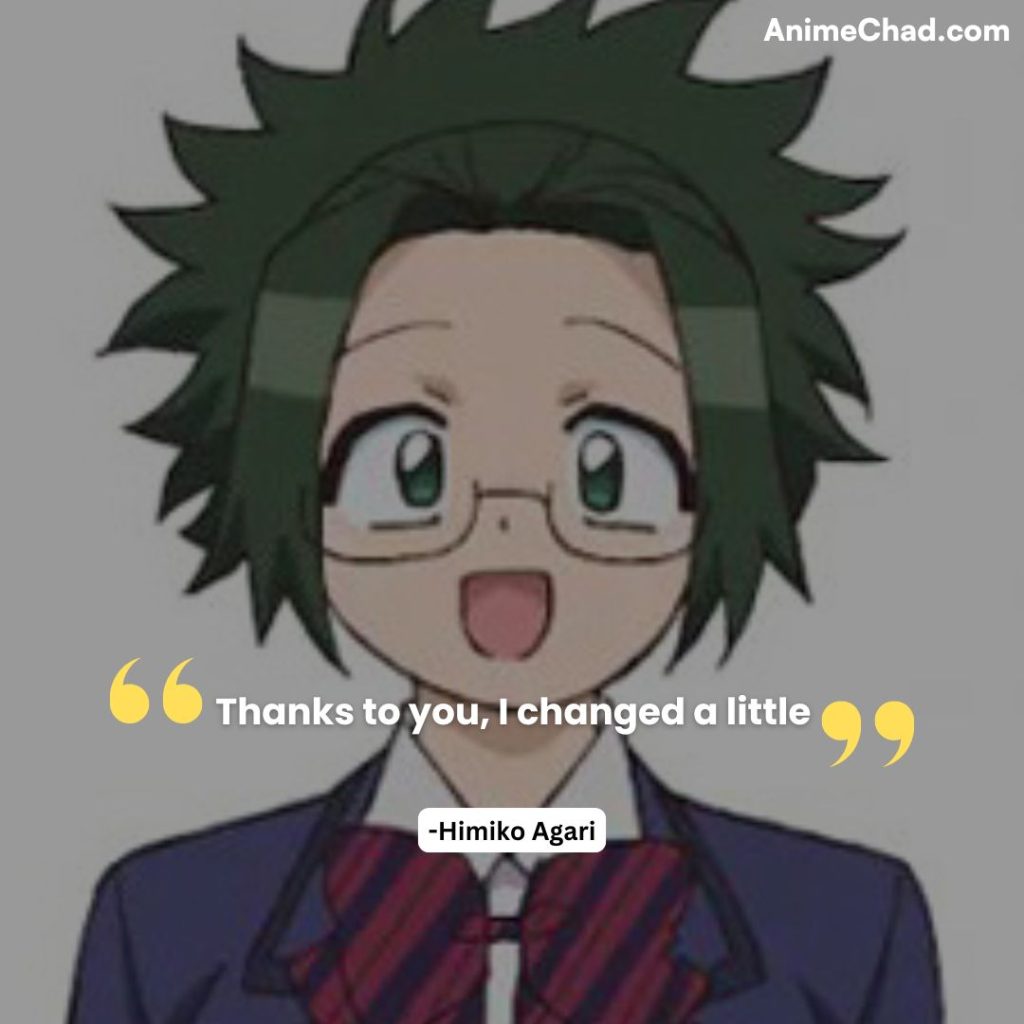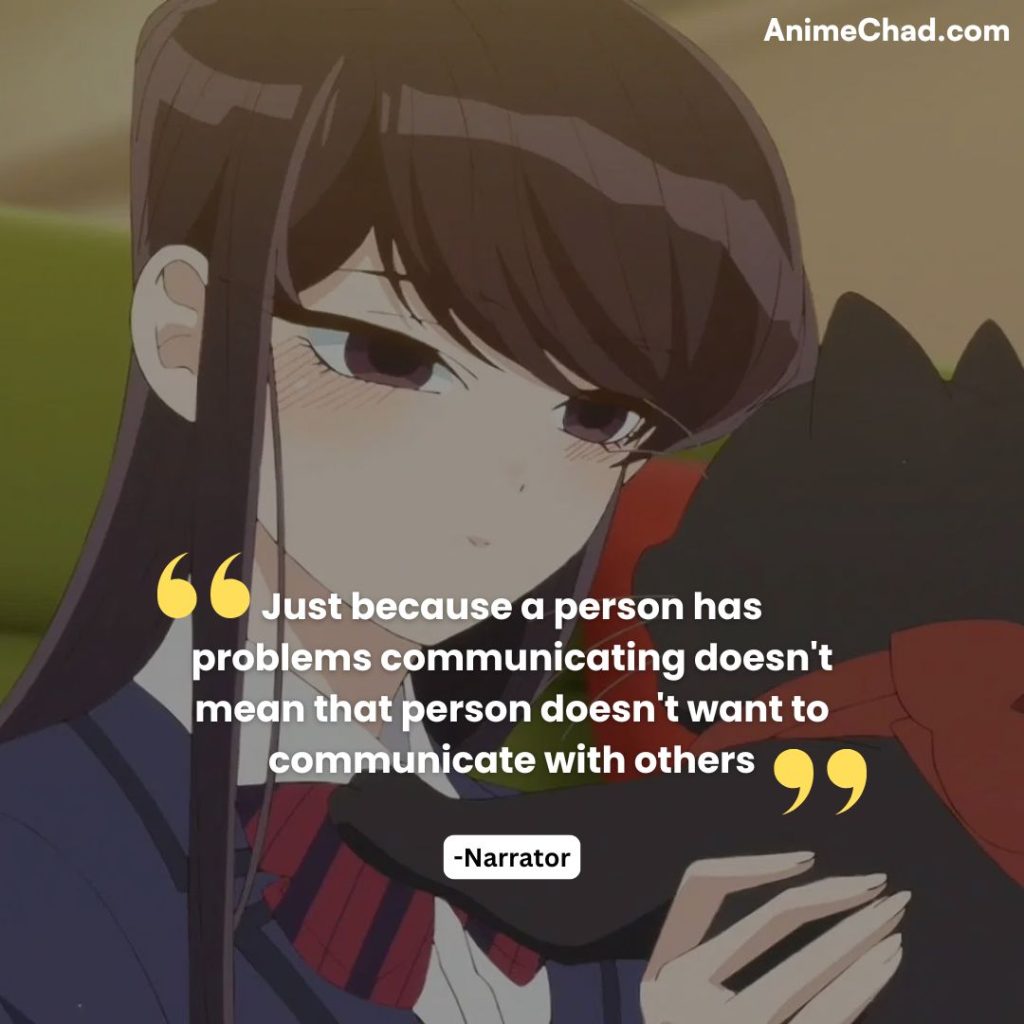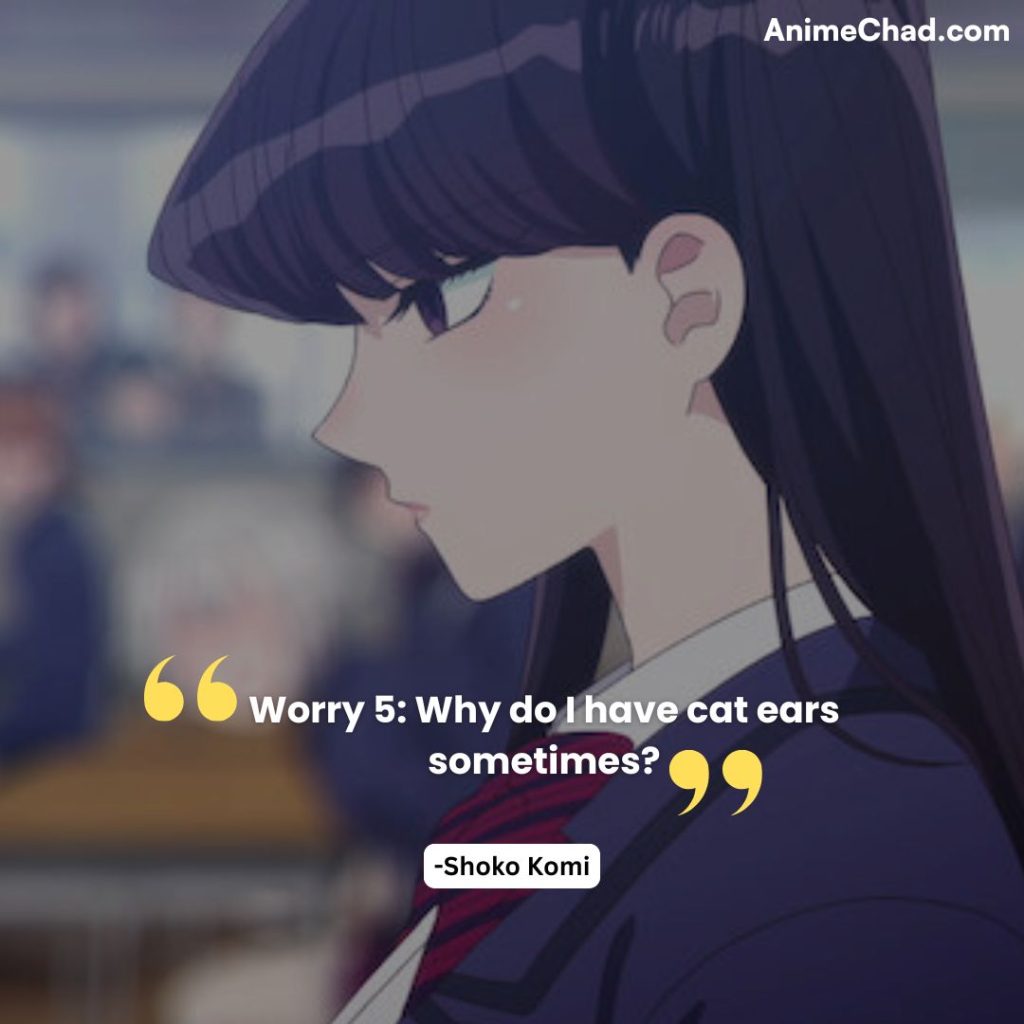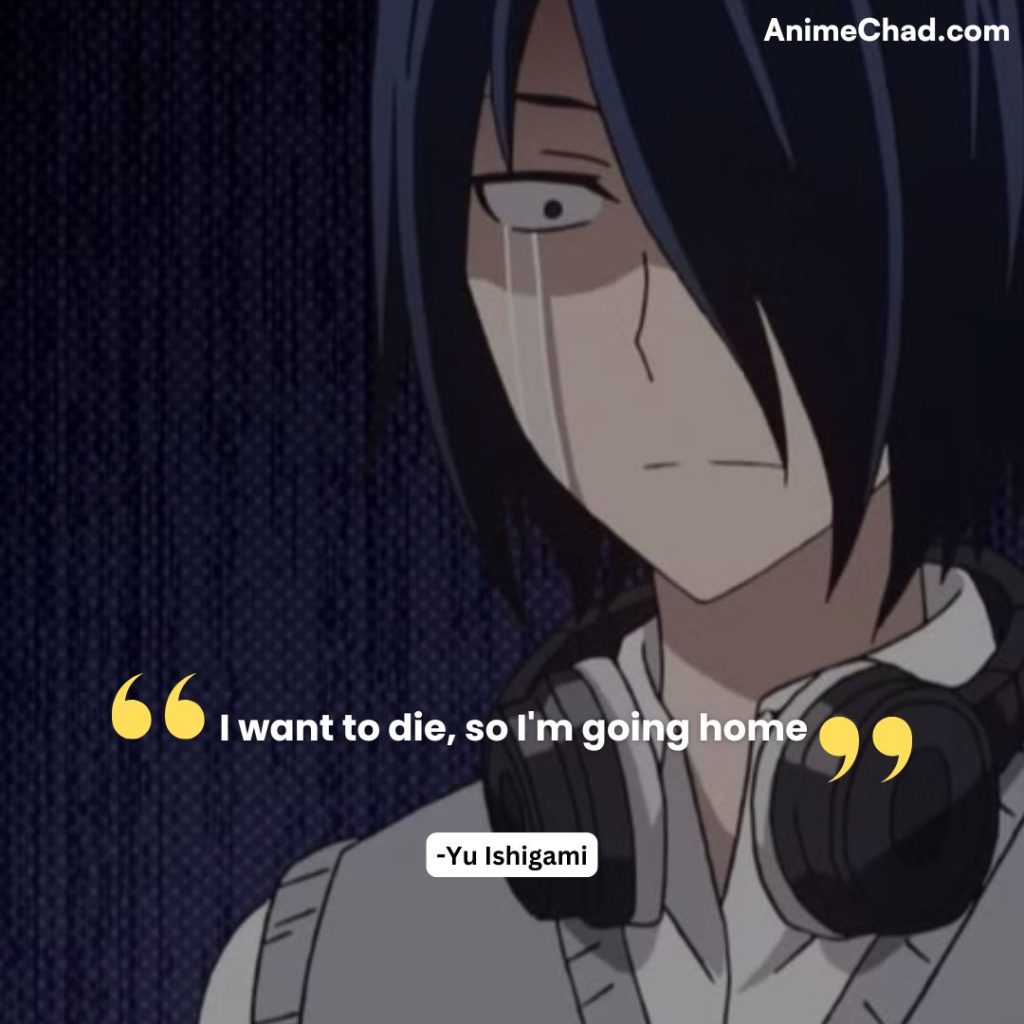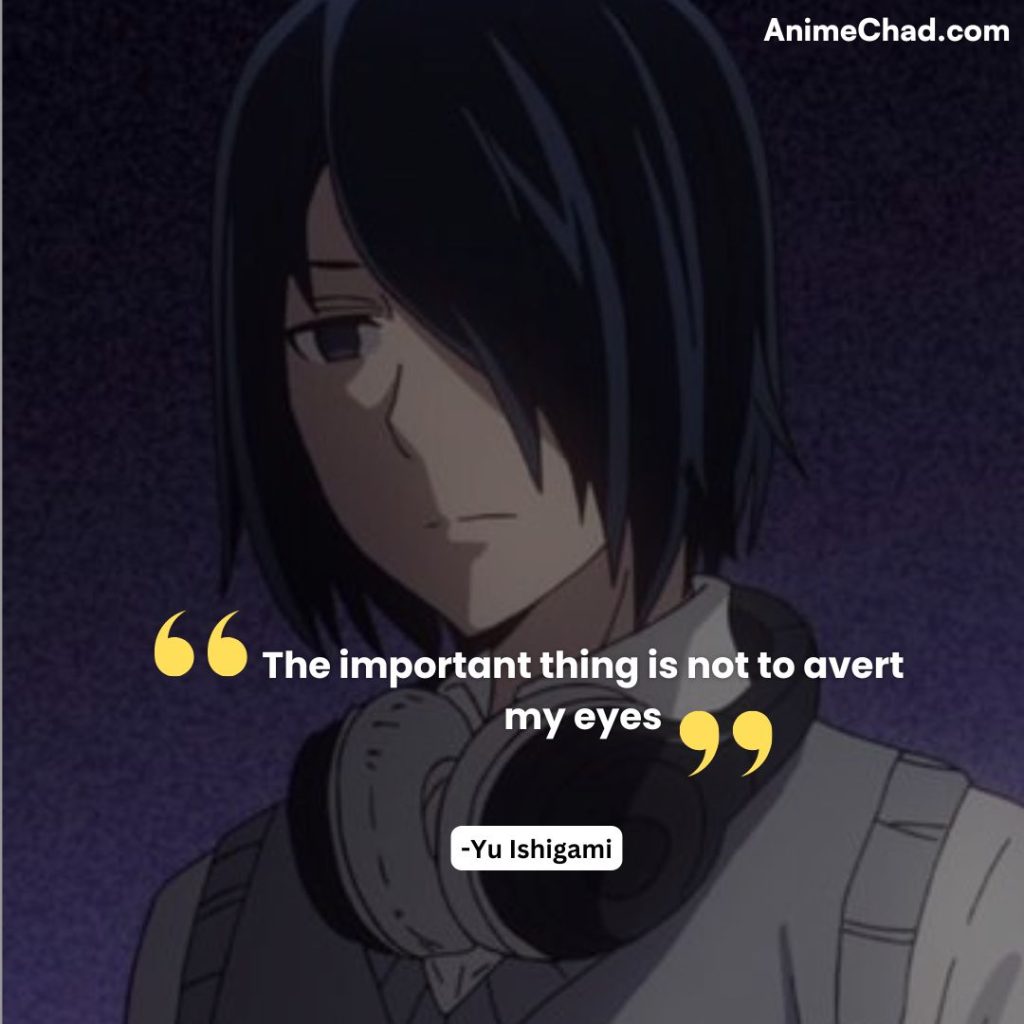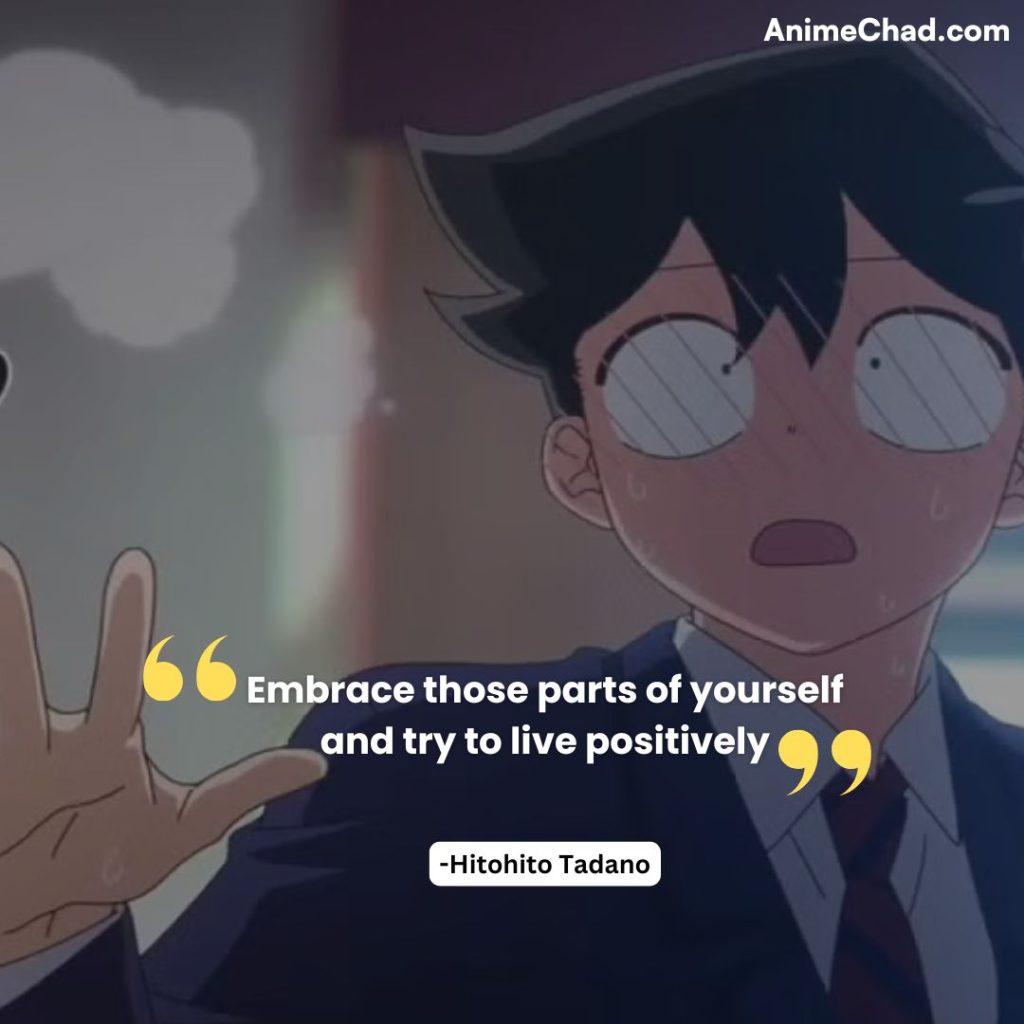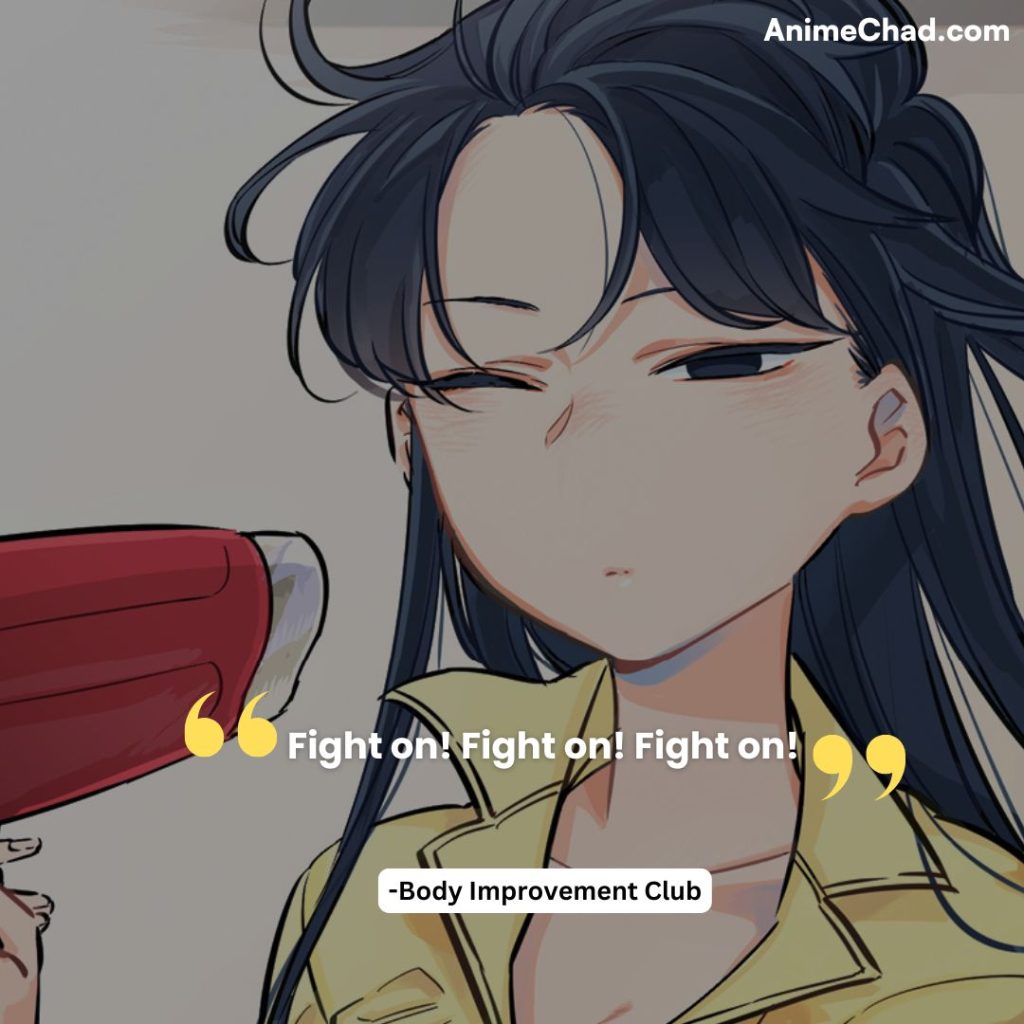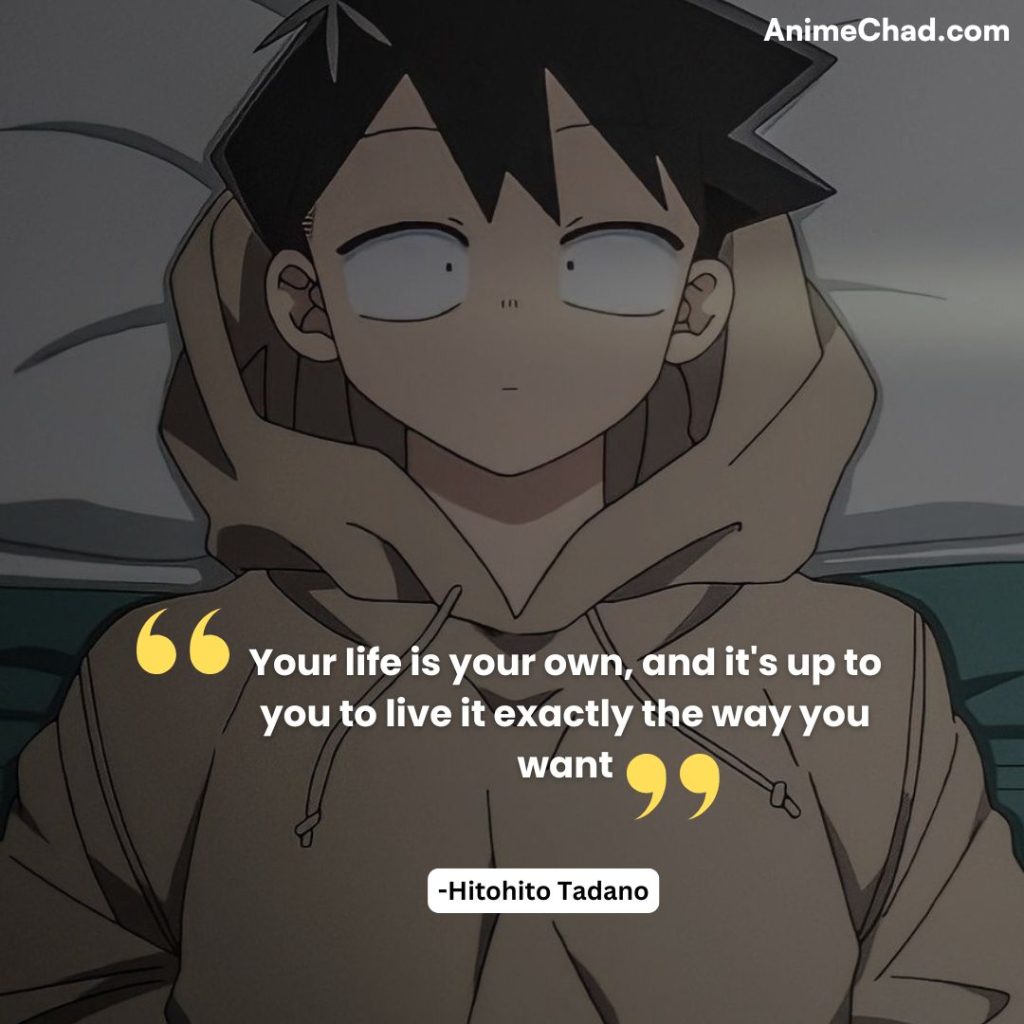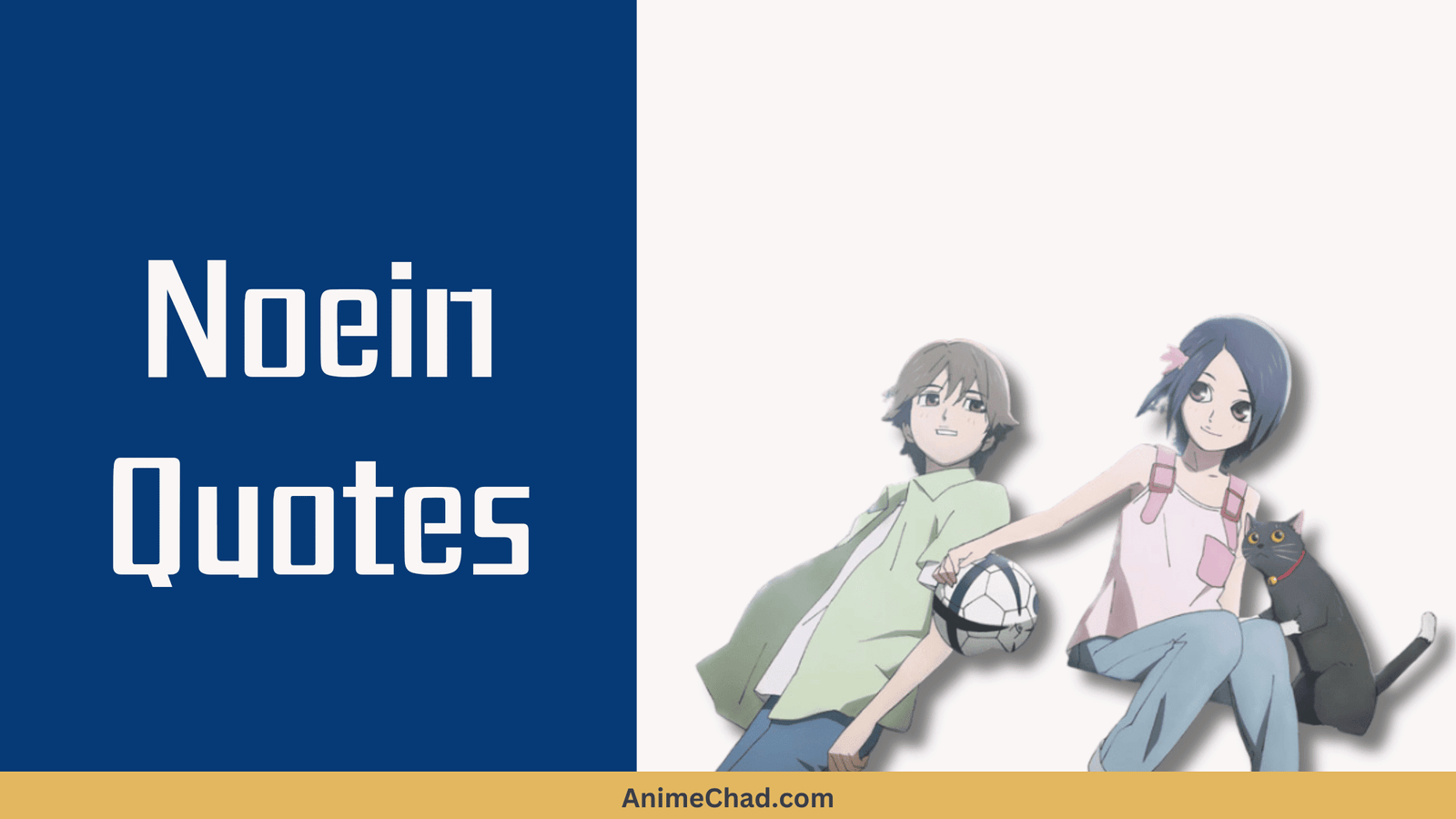Komi Can’t Communicate follows Shoko Komi, a high school student with extreme social anxiety, as she strives to make 100 friends despite her communication disorder.
The series explores themes of friendship, personal growth, and the challenges of social interaction.
This collection highlights 25 impactful quotes that showcase character development and the series’ core messages about overcoming social barriers and forming meaningful connections.
Bear in mind, they only struggle to form connections. It doesn’t mean that they don’t want to
(Opening narration of each episode)
Narrator
Sets the tone for the series, emphasizing Komi’s desire for friendship despite her communication difficulties.
I know that understanding the atmosphere and not standing out, is the key to happiness
(Episode 1: “It’s Just That She’s Bad at Communicating”)
Hitohito Tadano
Reveals Tadano’s initial mindset, contrasting with his later role in helping Komi stand out and connect.
I can’t even say hi to people, even though it seems so simple for others
(Episode 1: “It’s Just That She’s Bad at Communicating”)
Shoko Komi
Komi’s internal struggle, highlighting the core conflict of the series and her social anxiety.
Could we talk a little more?
(Episode 2: “It’s Just Childhood Friends”)
Shoko Komi
A breakthrough moment for Komi, showing her desire to overcome her communication disorder and connect with others.
To pass, students must be unique. In other words, freaks, weirdos, loners, miscreants, and eccentrics fill the school
(Episode 1: “It’s Just That She’s Bad at Communicating”)
Najimi Osana
Introduces the diverse cast of characters and the series’ celebration of individuality.
You don’t have to force it. I’m not entirely sure what you were trying to do, but when you’re with me, you don’t have to act tough
(Episode 11: “It’s Just a Cell Phone”)
Hitohito Tadano
Tadano’s perceptiveness and acceptance, key to helping Komi and others overcome their social barriers.
In moments like these, I think you should just smile
(Episode 6: “It’s Just a Summer Festival”)
Hitohito Tadano
Tadano’s gentle guidance, helping Komi navigate social situations and express herself non-verbally.
But a friend of a friend is still a friend, right?
(Episode 2: “It’s Just Childhood Friends”)
Najimi Osana
Najimi’s inclusive approach to friendship, contrasting with Komi’s initial struggle to make even one friend.
Even Monkeys Can Talk, chapter 4, page 116- Get your feelings across by looking people in the eyes
(Episode 11: “It’s Just a Cell Phone”)
Makoto Katai
Katai’s misinterpretation of Komi’s stare, highlighting the series’ humor and the challenges of non-verbal communication.
Femininity? Don’t judge me on something you can’t even quantify
(Episode 8: “It’s Just Obon”)
Omoharu Nakanaka
Challenges gender stereotypes, reflecting the series’ diverse representation of personalities and identities.
The emotional distance between them has shrunk
(Episode 8: “It’s Just Obon”)
Narrator
Observes Komi’s growing ability to connect with others, marking her progress in overcoming her communication disorder.
Times like these, it’s nice to have fun and not fuss. Otherwise she’ll think it’s her fault for ruining our good time
(Episode 5: “It’s Just a Physical Exam”)
Najimi Osana
Demonstrates understanding of Komi’s anxiety and the importance of creating a comfortable social environment.
Are you trying to trick me by assuming I can read minds, and thinking “you’re reading my mind”, right?
(Episode 3: “It’s Just a Normal Day”)
Hitohito Tadano
Showcases Tadano’s perceptiveness and the series’ playful approach to his “mind-reading” abilities.
I see! I thought for sure that it was an encoded death threat
(Episode 2: “It’s Just Childhood Friends”)
Najimi Osana
Humorously misinterprets Komi’s attempt at communication, highlighting the challenges and misunderstandings in social interactions.
No matter what I did, it was no use. It’s like I can’t speak
(Episode 1: “It’s Just That She’s Bad at Communicating”)
Shoko Komi
Komi’s internal struggle, emphasizing the severity of her communication disorder and the emotional toll it takes.
Thanks to you, I changed a little
(Episode 6: “It’s Just a Summer Festival”)
Himiko Agari
Reflects on personal growth through friendship, a key theme of the series.
Just because a person has problems communicating doesn’t mean that person doesn’t want to communicate with others
(Opening narration of each episode)
Narrator
Emphasizes the core message of the series, encouraging understanding and patience in social interactions.
Worry 5: Why do I have cat ears sometimes?
(Chapter 3)
Shoko Komi
A humorous moment of self-awareness, showcasing the series’ blend of realism and comedic visual metaphors.
I want to die, so I’m going home
(Episode 5: “It’s Just a Physical Exam”)
Yu Ishigami
Ishigami’s catchphrase, representing social anxiety and the desire to escape uncomfortable situations.
The important thing is not to avert my eyes
(Episode 11: “It’s Just a Cell Phone”)
Yu Ishigami
Ishigami’s personal growth moment, learning to face social challenges directly.
If everyone is not special, maybe you can be what you want to be
(Opening theme)
Narrator
Encapsulates the series’ message of self-acceptance and finding one’s place in the world.
Embrace those parts of yourself and try to live positively
(Episode 1: “It’s Just That She’s Bad at Communicating”)
Hitohito Tadano
Tadano’s advice to Komi, encouraging self-acceptance and personal growth.
Fight on! Fight on! Fight on!
(Multiple episodes)
Body Improvement Club
A recurring motivational chant that symbolizes perseverance and self-improvement, key themes of the series.
Your life is your own, and it’s up to you to live it exactly the way you want
(Episode 12: “It’s Just a School Trip”)
Hitohito Tadano
Empowers Komi to take control of her life and social interactions, marking her growth throughout the series.
This curated list captures Komi Can’t Communicate’s blend of humor, heartwarming moments, and insightful commentary on social anxiety and personal growth.
Each quote reflects key character developments while tying into the broader themes of friendship, self-acceptance, and the challenges of communication.

